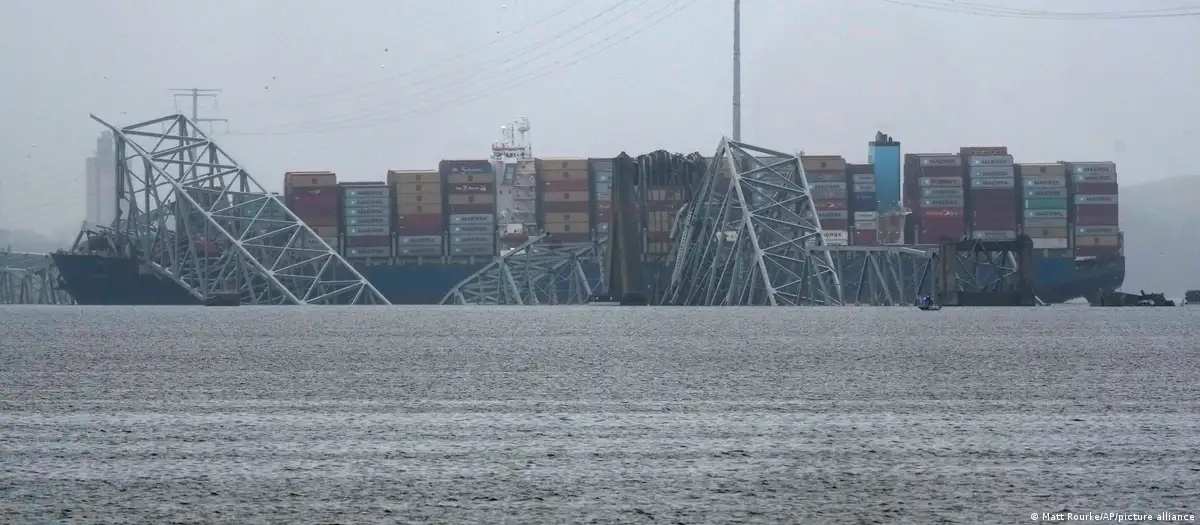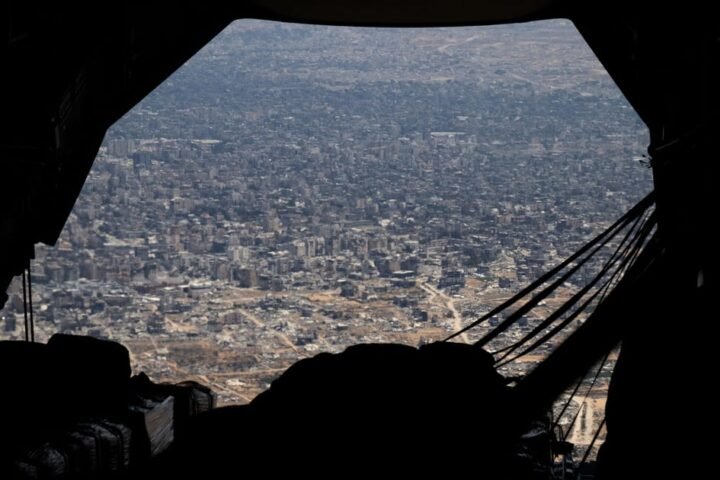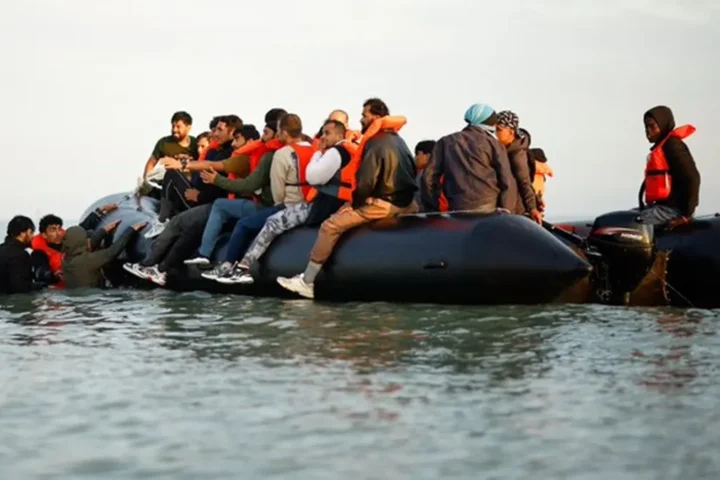Days after the Francis Scott Key bridge collapse, the US gives Maryland $60 million to rebuild the bridge. Meanwhile, insurers are expected to face record-breaking claims.
The US government on Thursday released an initial $60 million (€55.6 million) in emergency funds to the state of Maryland to help clear debris and begin rebuilding the collapsed of the Francis Scott Key Bridge in Baltimore.
Maryland Governor Wes Moore had earlier requested $60 million in emergency federal funding, and within hours his request was approved.
“Government is working hand in hand with industry to investigate the area, including the wreck, and remove the ship,” Moore said.
The Democratic governor said the emergency funding was needed to “lay the foundation for a rapid recovery.”
‘Long road ahead’ for Baltimore’s port
The Baltimore bridge collapsed into the Patapsco River in the early hours of Tuesday when it was hit by a large container ship.
Six people, who had been working on the bridge at the time fixing potholes, were killed in the collapse. Two bodies have been recovered from the water and two survivors were rescued.
President Joe Biden has vowed that the rebuilding of the bridge will be paid for entirely with federal funding.
But before that, there is still the massive work of removing the cargo ship, recovering the debris from the collapse and finding the four remaining bodies.
“This work is not going to take hours. This work is not going to take days. This work is not going to take weeks,” Moore said. “We have a very long road ahead of us.”
The request for $60 million was made to the Federal Highway Administration and is meant to supplement money provided by other agencies for the initial response operations.
Massive insurance claims expected
The collapse of the bridge is also expected to result in record-breaking insurance payouts.
Insurance giant Lloyd’s of London said it was “potentially the largest-ever marine insured loss.”
Lloyd’s chairman Bruce Carnegie-Brown told broadcaster CNBC that insurance claims would be made for the bridge, the ship and its cargo, but the real substantial claims would come from the accumulation of “second-order impacts.”
“A lot of business is going to be interrupted,” he said, with ships unable to enter parts of the port and some ships trapped behind the debris.
Transportation Secretary Pete Buttigieg said the port was the biggest entry point for vehicles into the US, including cars and heavy farm equipment, with a value of around $100 to $200 million passing through every day.
Governor Moore has warned that on top of the port workers who will be impacted by the disruption, more than 140,000 people could also be indirectly affected as the local economy takes a hit.
Source: Dw








